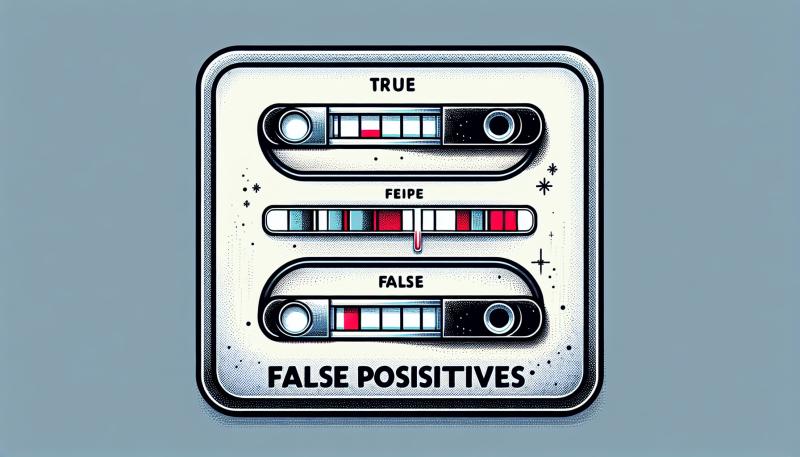
Understanding False Positives in Alcohol and Drug Testing
Whether for personal, legal, or employment reasons, alcohol and drug testing has become an integral part of modern society. As an individual consumer, it's crucial to understand not only the importance of these tests but also their potential inaccuracies, particularly false positives. A false positive occurs when the test indicates the presence of alcohol or drugs, despite the individual not having consumed these substances. This article will delve into the risk factors, causes, and steps to take when faced with a false positive in alcohol and drug testing, providing you with a comprehensive understanding to navigate these situations.
What Are False Positives?
A false positive result in alcohol and drug testing refers to the detection of a substance that is not actually present. This can occur due to various factors, including the sensitivity of the test, the presence of certain medications, and even specific foods. While testing technologies have improved significantly, the possibility of receiving a false positive remains.
Causes of False Positives
Understanding the causes behind false positives can help mitigate their occurrence and manage their potential consequences. Here are the common factors contributing to false positives:
- Medications: Certain over-the-counter (OTC) and prescription medications can lead to false positives. For instance, over-the-counter cold medications containing pseudoephedrine can be mistaken for methamphetamines.
- Foods: Foods like poppy seeds, when consumed in large quantities, have been known to cause false positives for opiates.
- Medical Conditions: Certain medical conditions can also affect test results. For example, liver diseases can elevate certain liver enzymes, which might be misinterpreted in alcohol tests.
- Cross-Reactivity: Drug tests can sometimes react with compounds similar to those they are designed to detect. This is known as cross-reactivity and can occur when non-target substances are similar in structure to targeted substances.
- Contaminated Samples: Improper handling or contamination of a sample can lead to false readings.
The Impact of False Positives
False positives can have significant personal, legal, and professional implications. For individuals, it could mean unwarranted scrutiny, potential job loss, or legal troubles. Understanding these impacts underscores the importance of accurate testing and the need for confirmations in case of a positive result.
What to Do When Faced with a False Positive
If you believe your test result is a false positive, taking appropriate steps can help rectify the situation. Here's what you can do:
- Request a Confirmation Test: Always ask for a confirmatory test. Confirmatory tests, such as Gas Chromatography-Mass Spectrometry (GC-MS), are more precise and can distinguish between different substances.
- Keep a Log of Medications and Foods: Keep detailed records of medications you take, including over-the-counter drugs, and any foods that might affect test outcomes to provide context if needed.
- Consult a Medical Professional: Seeking advice from a healthcare provider can help identify substances or conditions that might have caused the false positive.
- Know Your Rights: Understanding your rights regarding alcohol and drug testing is crucial, especially in a workplace or legal setting.
Strategies to Mitigate False Positives
While false positives cannot be entirely eliminated, steps can be taken to minimize their occurrence:
- Choose Reputable Testing Services: Opt for reliable and well-accredited testing facilities such as IMS Screening Solutions, which employ modern techniques and technology ensuring accuracy.
- Communication Before Testing: Notify the testing facility or administrator of any medications you are taking beforehand. This can sometimes allow for interpretation of the results with better context.
- Regular Updates of Medication Records: Maintain and update a personal medication list regularly and provide it during testing.
Conclusion
Alcohol and drug testing are essential for various aspects of contemporary life, including safety, employment, and legal compliance. However, understanding the potential for false positives and how to address them is crucial for any consumer. Recognizing the causes, impacts, and steps to take when facing inaccurate results empowers you to navigate the potential pitfalls of testing effectively.
IMS Screening Solutions, with its dedication to precision and reliability in alcohol and drug testing, stands as a trustworthy partner in ensuring accurate results. By staying informed and prepared, you can mitigate the consequences of false positives and maintain your personal and professional integrity.
For further information and resources on accurate alcohol and drug testing, visit IMS Screening Solutions.
